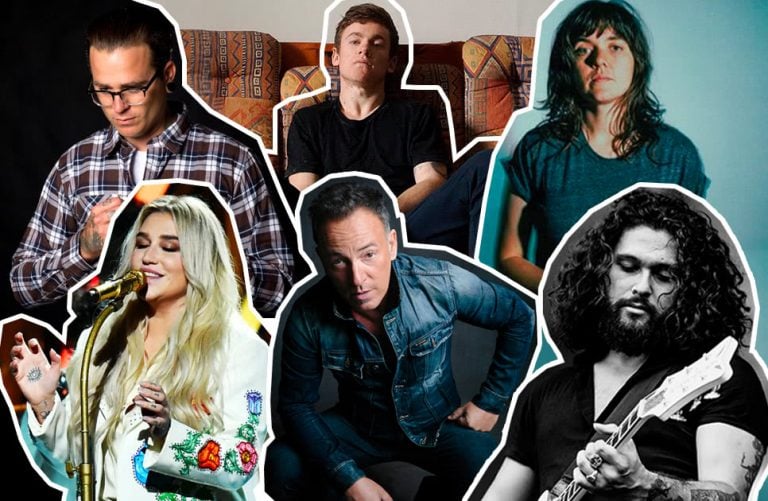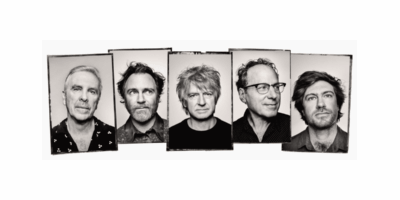Content warning: This article discusses mental illness and suicide.
Music is many things; for some it’s cathartic, for others it’s a way of coping with their problems and shutting out the world. Concerts could be the only place someone truly feels at home; for many, music has shaped their personal identity.
Mental illness is not selective. It can affect anyone at any time, regardless of their social status, job or how many carats their gold chain is. As the public conversation surrounding mental health gets louder, more and more people have begun sharing their stories; this of course includes musicians.
The people making the music can often have as much influence on their fans as the songs themselves. Although making music is a form of creative expression and catharsis for those behind it, it can also be a vehicle for sending a message to listeners, as is the public platform these artists are given because of their creative pursuits. It’s important to note that musicians are not mental health professionals, nor are they ever obliged to discuss their personal lives or offer advice to those who look up to them. However, the impact these individuals can have on their fans is indisputable.
Mitch James is up and coming songwriting troubadour, whose debut album is set to drop this September. Having travelled the world, persevering to achieve his dreams, James has often opened up about the realities of mental health and the stigma surrounding it. From busking to opening for Ed Sheeran in stadiums, James’ honesty is always at the forefront.
With that in mind, here’s a list of artists positively using their platform to advocate for mental health awareness, ending the stigma, and overall positive change.
Bruce Springsteen
Springsteen opened up about his longterm battle with depression in his 2016 autobiography Born to Run, giving fans the world over an intimate look into his experience with mental illness throughout his life. Renowned as one of the greatest performers on the planet, having someone like Springsteen publicise his own struggles is a huge contribution to rejecting the stigma that often pins those with depression as lazy and overdramatic. The continual normalisation of talking about mental health is such an important conversation to have, and it’s fantastic to have a voice like Bruce Springsteen in the mix.

Joel Birch
A large part of The Amity Affliction‘s success can be attributed to the relatability of Joel Birch‘s brutally honest lyrics. Having spent many years openly discussing his struggles with depression and anxiety during interviews and on social media, he has unwittingly become a particularly influential advocate for mental health within the heavy music scene. Although he regularly reminds fans that he himself still struggles and will never have the answers they seek, the frontman continues to serve as a comfort for those who relate to his lyrics.

Dave Le’aupepe
In his time as charismatic frontman of Australia’s favourite band Gang Of Youths, Dave Le’aupepe has never been shy about sharing his personal experiences with depression, anxiety and substance abuse. His music tells the tale of his trauma, with GOY’s debut album The Positions having been written throughout his ex-wife battling terminal cancer, his own suicide attempt and a stint in rehab. There is a reason people are drawn to Le’aupepe; his honesty and open discussion of his journey is both heartbreaking and encouraging, but most of all it’s a reminder that there is always a light at the end of the tunnel.

Courtney Barnett
Her very real and self-reflective lyrics are a big drawcard for Courtney Barnett. Each song follows it’s own narrative, often inspired by real-life experiences and making social commentary along the way. In interviews Barnett has spoken about listening to and then channelling her anxieties into her lyrics for recent album Tell Me How You Really Feel. Though she plays it cool on stage and in much of her music, she often talks about her anxieties and mental health issues in interviews, reminding listeners that there’s two sides to every story.

Mitch James
Having struggled with mental health issues in the past, Mitch James openly talks about his experiences in the hope of encouraging others to speak about their struggles and overcoming them. At his lowest point, the singer-songwriter found himself sleeping on the streets in London while trying to earn enough money busking and playing acoustic gigs to feed himself. In a recent interview, he stated that “I hope that I can be a champion of sorts for some people to just be like, ‘Fucking just be honest'”. His perseverance paid off, resulting in a record deal and opening for Ed Sheeran in New Zealand.

Kesha
After a tumultuous four years of personal struggle and a drawn-out legal battle, Kesha made her triumphant return to music with stunning power ballad ‘Praying’ in 2017. In an eloquent open letter accompanying the single release, she stated “I hope this song reaches people who are in the midst of struggles, to let them know that no matter how bad it seems now, you can get through it. If you have love and truth on your side, you will never be defeated. Don’t give up on yourself.” The rest of her album ‘Rainbow’ and her social media presence follow a similar theme – she advocates for self-love, healing, mental health awareness and ending the stigma.

James Blake
British electronic musician James Blake has publicly spoken about his mental health a number of times, including in-depth on a panel earlier this year about the ways touring affected his mental and physical health, eventually causing depression and suicidal thoughts. During the panel, he spoke out against critics referring to his latest single as “sad-boy music”, saying that it perpetuates an “unhealthy and problematic” culture. He summarised his thoughts in an additional tweet:
Please read. I've wanted to say this for a long time, and now seemed as good a time as any. pic.twitter.com/1fSPt7SJnx
— James Blake (@jamesblake) May 26, 2018
Halsey
Halsey has always used her platform to open up discussions about different issues important to her and the world around her. Whether it be encouraging fans in her on-stage speeches, opening up about her struggles with bipolar disorder in interviews, or posting candidly on social media about personal stories and experiences – she continues to work toward ending the stigma surrounding mental health.
Mental Health Awareness !!!!!! ✨ pic.twitter.com/8qsrXgRH5a
— h (@halsey) October 11, 2017
If you or somebody you care for needs help or information about depression, suicide, anxiety, or mental health issues, contact Beyond Blue on 1300 22 4636 or Lifeline on 13 11 14.


































